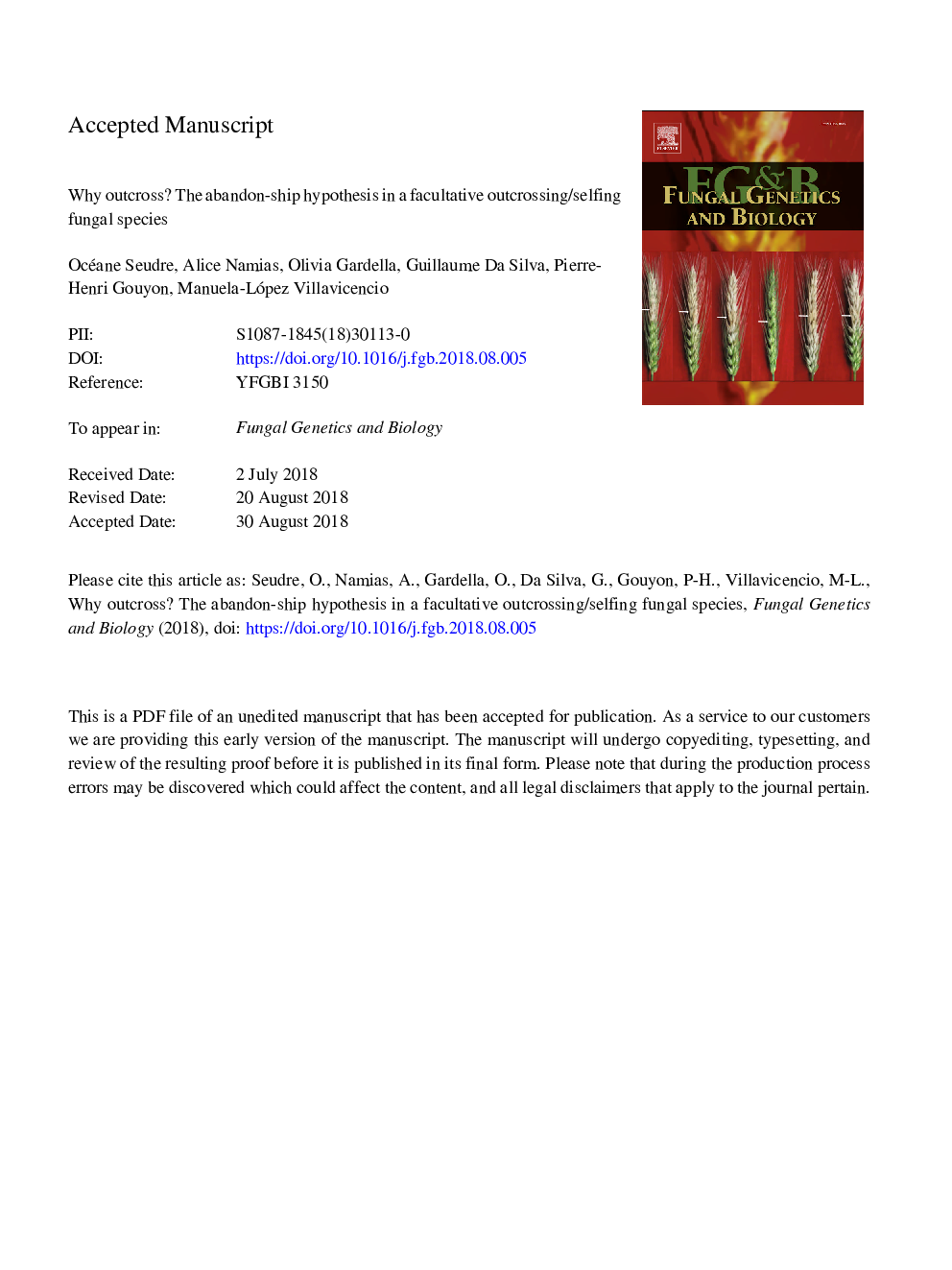| کد مقاله | کد نشریه | سال انتشار | مقاله انگلیسی | نسخه تمام متن |
|---|---|---|---|---|
| 10148276 | 1646551 | 2018 | 36 صفحه PDF | دانلود رایگان |
عنوان انگلیسی مقاله ISI
Why outcross? The abandon-ship hypothesis in a facultative outcrossing/selfing fungal species
دانلود مقاله + سفارش ترجمه
دانلود مقاله ISI انگلیسی
رایگان برای ایرانیان
کلمات کلیدی
موضوعات مرتبط
علوم زیستی و بیوفناوری
بیوشیمی، ژنتیک و زیست شناسی مولکولی
بیولوژی سلول
پیش نمایش صفحه اول مقاله

چکیده انگلیسی
Most species able to reproduce both sexually and asexually (facultative sexual species) invest more in sexual reproduction in stressful environment conditions. According to the abandon-ship hypothesis, plasticity for investment in sexual reproduction may have been selected in these species, allowing unfit genotypes to generate progeny carrying new advantageous allelic combinations. We tested this hypothesis in Aspergillus nidulans, a fungus able to reproduce asexually, or sexually, by outcrossing and/or haploid selfing (i.e. fusion of genetically identical haploid nuclei, causing immediate genome-wide homozygosity). We crossed various strains of A. nidulans in a non-stressful environment and a stressful environment containing a non-lethal dose of fungicide. Without stress, crosses preferentially generated haploselfed fruiting bodies, whereas stressful conditions significantly increased the outcrossing rate. Our results strongly support the abandon-ship hypothesis and suggest that, for parents with low fitness, the costs of investing in sexual reproduction may be compensated by the production of fitter progeny carrying beneficial allele combinations. Similarly, the progeny generated by outcrossing was less fit than that produced by haploid selfing in non-stressful environments, but fitter in stressful conditions, suggesting that outcrossing may have short-term advantages in stressful environments in A. nidulans.
ناشر
Database: Elsevier - ScienceDirect (ساینس دایرکت)
Journal: Fungal Genetics and Biology - Volume 120, November 2018, Pages 1-8
Journal: Fungal Genetics and Biology - Volume 120, November 2018, Pages 1-8
نویسندگان
Océane Seudre, Alice Namias, Olivia Gardella, Guillaume Da Silva, Pierre-Henri Gouyon, Manuela López-Villavicencio,